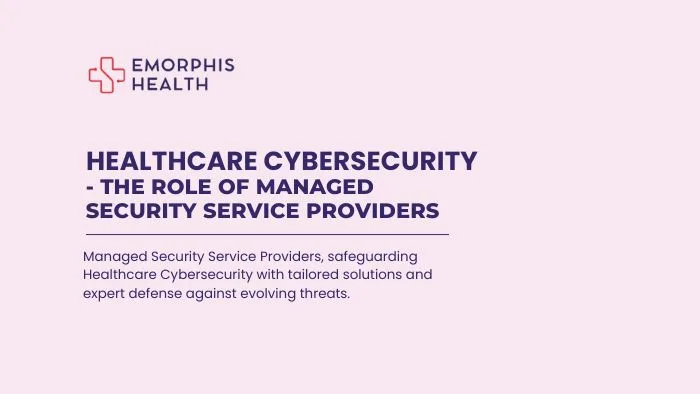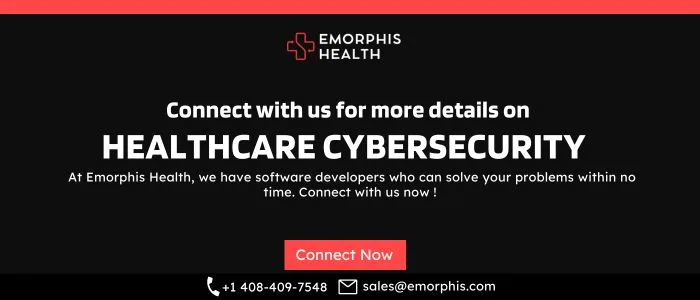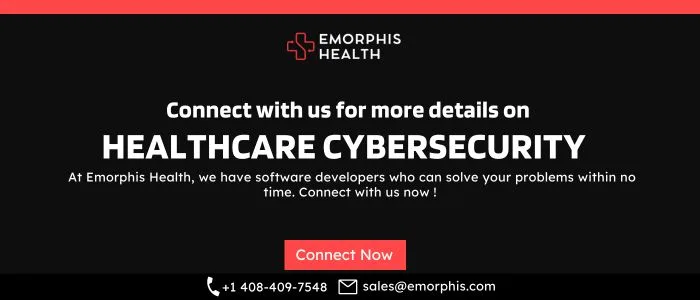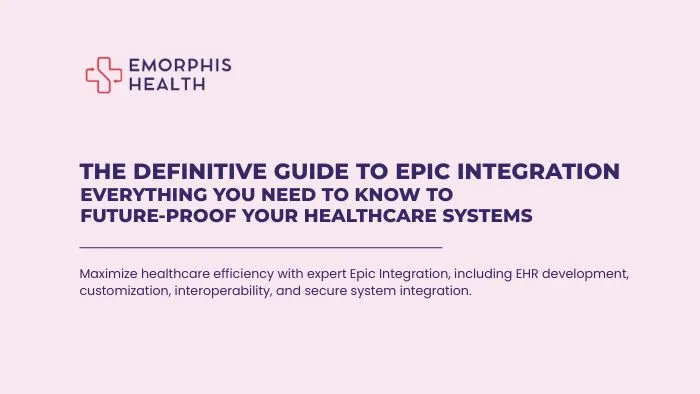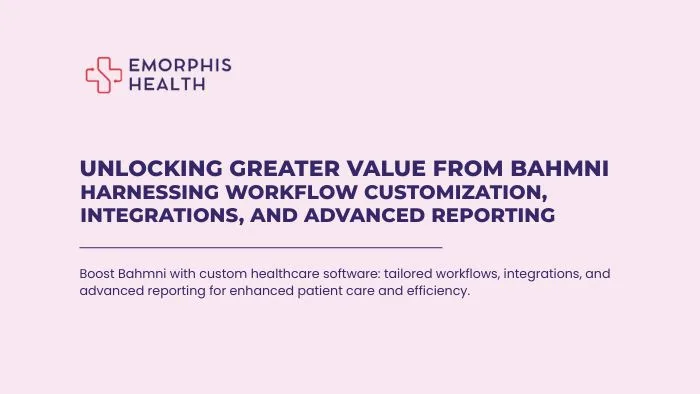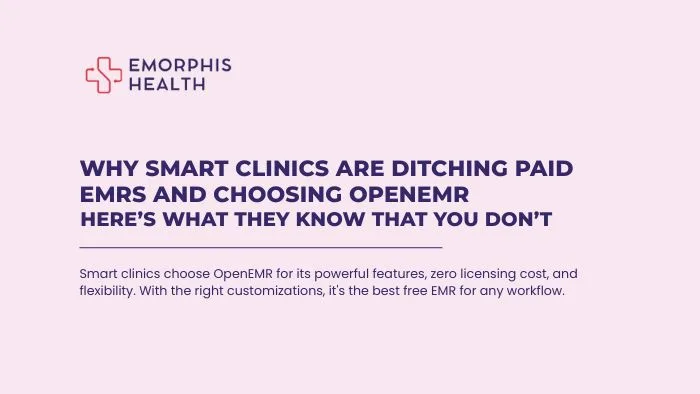Understanding the Crucial Need for Cybersecurity in Healthcare
See Contents
- 1 Understanding the Crucial Need for Cybersecurity in Healthcare
- 2 How Managed Security Service Providers (MSSPs) Help Healthcare Organizations?
- 3 Top 5 Types of Challenges in Healthcare Cybersecurity
- 4 Choosing the right Managed Security Service Provider – What to keep in mind?
- 5 Return on Investment Analysis – Business Case for Managed Security Service Providers in Healthcare
- 6 Future Perspectives – Managed Security Service Providers and the Changing Landscape
- 7 Conclusion
In today’s digital age, the healthcare sector is confronted with an escalating need for robust cybersecurity measures with managed security service providers. In fact, the vast amount of sensitive patient data stored electronically makes healthcare organizations lucrative targets for cyber threats. The repercussions of a security breach extend beyond compromised data, affecting patient safety and eroding trust in healthcare services.
Amidst a landscape where healthcare organizations face escalating cyber threats, the HIMSS Healthcare Cybersecurity Survey 2023 reveals alarming statistics. Nearly half of respondents detected significant security incidents within one week or less, emphasizing the need for swift and effective response mechanisms.
However, with a global shortage of 3.4 million cybersecurity professionals, as highlighted by the ISC² Cybersecurity Workforce Report 2021, the challenge of safeguarding patient data becomes increasingly daunting. This is where partnering with a Managed Security Service Provider (MSSP) becomes indispensable.
Moreover, the healthcare industry grapples with a dynamic threat landscape as it embraces digital transformation. The proliferation of interconnected devices and systems introduces new vulnerabilities, necessitating a comprehensive cybersecurity strategy. In fact, the evolving nature of cyber threats demands that healthcare organizations not only address current challenges but also adapt to emerging risks associated with advancing technologies.
How Managed Security Service Providers (MSSPs) Help Healthcare Organizations?
MSSPs offer a comprehensive suite of services to strengthen healthcare cybersecurity:
1. Proactive Measures and Strengthened Defenses
- Conducting thorough vulnerability assessments and penetration testing to pinpoint and address potential security flaws in your infrastructure.
- Security awareness training for staff to recognize and mitigate risks
- Fostering a culture of cybersecurity within the organization
2. Integration with Regulatory Compliance
- Aligning security practices with HIPAA and other regulations
- Viewing compliance as essential for trust with patients and stakeholders
- Integrating cybersecurity measures with regulatory requirements for a robust framework
By partnering with an MSSP, healthcare providers gain access to specialized expertise and advanced technologies, enabling them to:
- Implement a proactive approach to cybersecurity that goes beyond just reacting to threats.
- Ensure staff is well-equipped to identify and mitigate security risks.
- Maintain regulatory compliance while building trust with patients and stakeholders.
Top 5 Types of Challenges in Healthcare Cybersecurity
1. Core Challenges
- High-Value Data: Healthcare organizations manage a treasure trove of sensitive data, including personally identifiable information (PII), medical history, financial records, and intellectual property. This makes them prime targets for cybercriminals seeking financial gain, disruption, or access to valuable data for identity theft, fraud, or blackmail.
- Legacy Systems: Many healthcare institutions rely on outdated infrastructure, including legacy operating systems and medical devices, which often lack adequate security patches and are more vulnerable to exploits. Upgrading these systems can be costly and disruptive, creating a complex trade-off between modernization and maintaining operational continuity.
- Fragmented IT Landscape: Healthcare organizations often have a patchwork of IT systems from various vendors, making it difficult to achieve consistent security policies and enforce them across the entire network. Integration complexities and a lack of centralized control can create vulnerabilities.
- Compliance Landscape: Healthcare is subject to a complex web of regulations, including HIPAA, HITRUST, GDPR, and others. Keeping pace with evolving regulations and demonstrating compliance can be a significant burden, requiring ongoing vigilance and resource allocation.
2. Human Factors
- Limited Cybersecurity Awareness: Healthcare staff may prioritize patient care over cybersecurity best practices, making them susceptible to phishing attacks, social engineering tactics, or accidental data breaches due to a lack of training or awareness. Phishing emails designed to appear legitimate can trick staff into revealing credentials or clicking on malicious links.
- Remote Work Security: The rise of remote work for healthcare professionals introduces new security concerns. Securing home networks and ensuring proper access controls for remote access to patient data necessitates robust endpoint security measures and data encryption strategies.
3. Technological Advancements
- Internet of Medical Things (IoMT): The growing adoption of IoMT devices in connected hospitals creates new attack surfaces. These devices may have limited security features, making them vulnerable to hacks that could disrupt healthcare delivery, steal patient data, or even manipulate medical equipment operations, potentially impacting patient safety.
- Artificial Intelligence (AI) and Machine Learning (ML): While AI and ML hold promise for healthcare advancements, they are susceptible to adversarial attacks that could compromise patient data, manipulate diagnoses or treatment plans, or disrupt AI-powered healthcare systems. Ensuring the security and trustworthiness of AI/ML models is crucial.
4. Evolving Threat Landscape
- Ransomware Attacks: Healthcare is a prime target for ransomware attacks, where attackers encrypt critical data and demand payments for decryption. Disruptions caused by ransomware attacks can significantly impact patient care and disrupt operations. The high value of patient data makes it particularly attractive to ransomware criminals.
- Advanced Persistent Threats (APTs): Highly sophisticated cybercriminals or state-backed actors may target healthcare organizations for long-term espionage, stealing data, disrupting operations, or sabotaging critical infrastructure. These APTs often employ sophisticated techniques to evade detection.
- Supply Chain Attacks: Vulnerabilities in software or hardware supply chains can provide a point of entry for attackers to gain access to healthcare networks and infrastructure. The interconnected nature of the modern healthcare ecosystem makes it crucial to consider the security of third-party vendors and partners.
5. Additional Considerations
- Budgetary Constraints: Healthcare organizations often grapple with limited budgets, making it difficult to allocate resources for cybersecurity investments in personnel, training, and advanced security solutions. Striking a balance between necessary security measures and operational costs is a challenge.
- Data Privacy Concerns: There is a constant tension between ensuring patient data security and maintaining patient privacy. Implementing security measures requires careful consideration of patient data protection regulations and implementing solutions that balance security with patient rights.
By addressing these multifaceted challenges, healthcare organizations can significantly improve their cybersecurity posture and safeguard the integrity of patient data, ensuring better healthcare delivery and patient trust.
Choosing the right Managed Security Service Provider – What to keep in mind?
Selecting the ideal Managed Security Service Provider (MSSP) is crucial for healthcare organizations navigating the ever-evolving cybersecurity landscape. A qualified MSSP can significantly bolster your defenses, safeguard sensitive patient data, and ensure the uninterrupted operation of critical healthcare systems. Here are key aspects to prioritize when evaluating potential Managed Security Service Providers:
a. Expertise and Experience in Healthcare Security:
- Security Certifications: Prioritize Managed Security Service Providers with relevant security certifications, such as SOC 2, PCI DSS, and HITRUST. These certifications demonstrate the MSSP’s commitment to industry best practices and compliance with healthcare regulations like HIPAA.
- Industry-Specific Knowledge: Seek Managed Security Service Providers with demonstrable experience working within the healthcare sector. This ensures they possess a deep understanding of the unique security challenges you face and the specific regulations governing healthcare data privacy.
- Threat Intelligence: Choose a Managed Security Service Provider that offers ongoing threat intelligence and analysis. This will keep you informed about the latest cyber threats targeting healthcare institutions, allowing you to proactively address potential vulnerabilities.
b. Technology and Services Offered by the Managed Security Service Provider
- Comprehensive Security Stack: Evaluate the MSSP’s security stack, including tools for threat detection, monitoring, incident response, vulnerability management, and endpoint security. Ensure it aligns with your organization’s specific needs and offers a holistic approach to security.
- Compliance Integration: Look for a Managed Security Service Provider that can seamlessly integrate their security solutions with your existing compliance frameworks. This simplifies the process and ensures ongoing regulatory adherence.
- Scalability: Choose a Managed Security Service Provider whose solutions can scale to accommodate your organization’s growth and evolving security needs.
c. Customer Support and Communication from the Managed Security Service Provider
- 24/7 Availability: Healthcare operates around the clock. Therefore, select a Managed Security Service Provider offering 24/7 security monitoring and incident response capabilities. This ensures prompt action to address security threats whenever they arise.
- Dedicated Team: Ensure the Managed Security Service Provider assigns a dedicated team to manage your account. This team should provide personalized support and possess a thorough understanding of your specific security posture.
- Clear Communication: Choose a Managed Security Service Provider that aligns with your organization’s preferred communication style. Regular reporting and updates on security threats and activities are critical for maintaining transparency and informed decision-making.
d. Service Level Agreements (SLAs) with the Managed Security Service Provider
- Defined Performance Metrics: The SLA should define clear performance metrics for key security services. This includes response times, uptime guarantees, and security event detection accuracy.
- Cost Transparency: Ensure the SLA outlines all costs associated with the Managed Security Service Provider’s services. This avoids hidden fees or unexpected charges.
- Termination Clause: Include a clear termination clause in the SLA. This allows you to exit the agreement if the Managed Security Service Provider fails to meet your expectations.
e. Additional Considerations
- Data Residency: Understand where your data will be stored and processed by the Managed Security Service Provider. This is particularly important for healthcare organizations subject to stringent data privacy regulations.
- Customer References: Request customer references from potential Managed Security Service Providers. Speaking with other healthcare organizations can provide valuable insights into their experience with the MSSP.
- Security Culture: Evaluate the Managed Security Service Provider’s overall security culture. Look for a company that prioritizes ongoing employee training and fosters a strong awareness of security best practices.
By carefully considering these factors, healthcare organizations can make informed decisions when selecting a Managed Security Service Provider. A strong partnership with a qualified MSSP can significantly enhance your cybersecurity posture, safeguard sensitive patient data, and ensure the continuous delivery of high-quality healthcare services.
Return on Investment Analysis – Business Case for Managed Security Service Providers in Healthcare
While investing in cybersecurity may seem like an expense, partnering with an MSSP can demonstrably improve a healthcare organization’s ROI. Here’s a breakdown of the potential benefits that translate to financial gains:
i. Cost Savings
- Reduced Staffing Costs: MSSPs offer a pool of security expertise at a potentially lower cost than hiring and training in-house security personnel. This eliminates the need for ongoing recruitment, onboarding, and salary expenses associated with a dedicated security team.
- Enhanced Efficiency: MSSPs leverage their specialized tools and automation to streamline security processes, freeing up your IT staff to focus on core healthcare IT functions. This translates to increased operational efficiency and improved IT department productivity.
- Reduced Downtime: MSSPs provide proactive monitoring and rapid incident response, minimizing downtime caused by cyberattacks. This translates to cost savings associated with lost productivity, data recovery, and reputational damage.
ii. Improved Security Posture
- Proactive Threat Detection and Prevention: MSSPs employ advanced threat intelligence and sophisticated security tools to identify vulnerabilities and prevent cyberattacks before they occur. This proactive approach significantly reduces the risk of costly data breaches and ransomware attacks.
- Compliance Optimization: MSSPs can help navigate the complex healthcare compliance landscape. They ensure your organization adheres to regulations like HIPAA and HITRUST, avoiding hefty fines and reputational damage associated with non-compliance.
- Enhanced Patient Trust: With robust cybersecurity measures in place, healthcare organizations can build stronger patient trust by demonstrating a commitment to safeguarding sensitive patient data. This can lead to increased patient loyalty and potentially attract new patients seeking providers who prioritize data security.
iii. Quantifying the ROI
Measuring the ROI of an MSSP partnership can be multifaceted. While some aspects are difficult to quantify in exact dollar terms, the positive impact on patient care, staff productivity, and overall security posture can be significant. Here are some ways to approach ROI evaluation:
- Cost Reduction Calculations: Compare the projected annual cost savings from reduced staffing, improved efficiency, and minimized downtime to the annual cost of the MSSP service.
- Risk Mitigation Value: Analyze the potential financial losses associated with a data breach or cyberattack. Consider the cost of data recovery, regulatory fines, legal fees, and reputational damage, and how partnering with an MSSP reduces these risks.
- Improved Patient Satisfaction: Increased patient trust due to robust data security can lead to higher patient satisfaction scores, potentially translating to increased patient retention and revenue.
By carefully evaluating these factors, healthcare organizations can confidently demonstrate the positive ROI associated with partnering with a qualified MSSP. The cost savings, enhanced security posture, and improved patient trust can significantly contribute to a healthcare organization’s financial health and overall success.
Future Perspectives – Managed Security Service Providers and the Changing Landscape
The healthcare cybersecurity landscape is constantly evolving, driven by advancements in technology, the growing sophistication of cyberattacks, and ever-changing regulations. Managed Security Service Providers (MSSPs) will need to adapt and innovate to stay relevant and offer healthcare organizations the best possible protection. Here are some key future perspectives for MSSPs:
I. Enhanced Threat Detection and Response
- AI and Machine Learning (ML): MSSPs will increasingly leverage AI and ML to analyze vast amounts of security data, identify emerging threats faster, and automate incident response processes. This will allow for more proactive and targeted defense strategies by MSSPs.
- Threat Intelligence Sharing: Collaboration between MSSPs and healthcare organizations to share threat intelligence will be crucial. This will enable faster identification of new attack vectors and the development of more effective mitigation strategies by MSSPs.
II. Security for Emerging Technologies
- Internet of Medical Things (IoMT): MSSPs must develop specialized security solutions for the growing number of IoMT devices in healthcare settings. This includes secure device management, data encryption, and vulnerability patching, all offered by leading MSSPs.
- Cloud Security: As healthcare organizations move data and applications to the cloud, MSSPs must offer robust cloud security solutions that comply with healthcare regulations. Leading MSSPs will be at the forefront of providing these solutions.
III. Compliance Integration
- Evolving Regulations: MSSPs will need to stay up-to-date on evolving healthcare regulations like HIPAA and adapt their services to ensure ongoing compliance for their healthcare client base.
- Compliance Automation: Compliance automation tools will streamline the process for healthcare organizations, allowing them to demonstrate compliance efficiently. Leading MSSPs will incorporate these tools into their offerings.
IV. Focus on Patient Privacy
- Data Minimization: MSSPs should help healthcare organizations implement data minimization strategies to collect, store, and process only the data necessary for patient care. This helps reduce the attack surface and the potential for data breaches, a key concern for MSSPs focused on patient privacy.
- Data Loss Prevention (DLP): Advanced DLP solutions will be essential for preventing unauthorized data exfiltration and safeguarding patient privacy. Leading MSSPs will prioritize offering these solutions.
V. Additional Considerations
- Human Factors: Security awareness training and behavioral change programs will remain crucial in mitigating human error, a significant factor in healthcare data breaches. MSSPs can play a vital role in providing these programs to their clients.
- Supply Chain Security: MSSPs will need to address supply chain security risks by vetting third-party vendors and ensuring their security practices meet healthcare standards. This will be a crucial aspect of comprehensive security offered by leading MSSPs.
Conclusion
In summary, the cybersecurity landscape in healthcare is complex, demanding robust measures to safeguard patient data and ensure uninterrupted services. Managed Security Service Providers (MSSPs) play a pivotal role in addressing unique challenges, from regulatory compliance to telehealth security. The comprehensive approach of MSSPs covers proactive measures, incident response, endpoint security, staff education, and network security.
The business case for MSSPs is underscored by a Return on Investment (ROI) analysis, showcasing tangible and intangible benefits. The future perspective emphasizes MSSPs’ adaptation to emerging technologies for cutting-edge solutions. As healthcare evolves digitally, collaboration with MSSPs is not just a necessity but a strategic imperative, shaping a future where cybersecurity remains resilient against evolving threats.
Emorphis Health stands as a distinguished Managed Security Service Provider (MSSP) specializing in healthcare cybersecurity solutions. Leveraging cutting-edge technologies and a wealth of industry expertise, Emorphis Health is dedicated to fortifying the cybersecurity posture of healthcare organizations. With a comprehensive approach, Emorphis Health addresses the unique challenges faced by the healthcare sector, from safeguarding patient data to ensuring compliance with industry regulations. The company’s proactive measures encompass continuous monitoring, vulnerability assessments, and incident response strategies, providing a resilient defense against evolving cyber threats. Emorphis Health’s commitment to staying at the forefront of emerging technologies positions it as a trusted partner in navigating the intricate landscape of healthcare cybersecurity.
Connect with Emorphis Health to collaborate with seasoned experts in healthcare cybersecurity, ensuring a proactive and comprehensive defense against evolving threats.

